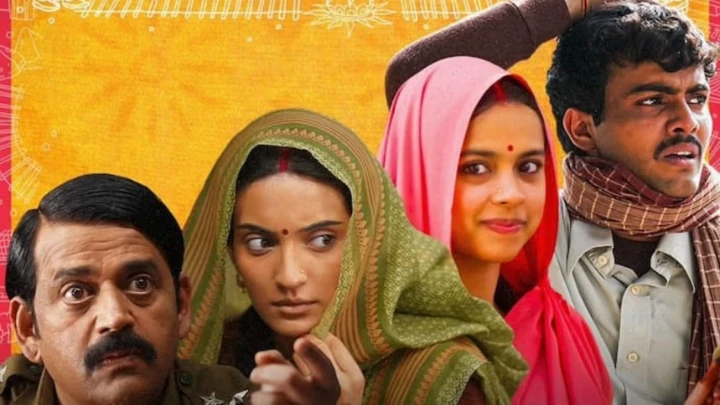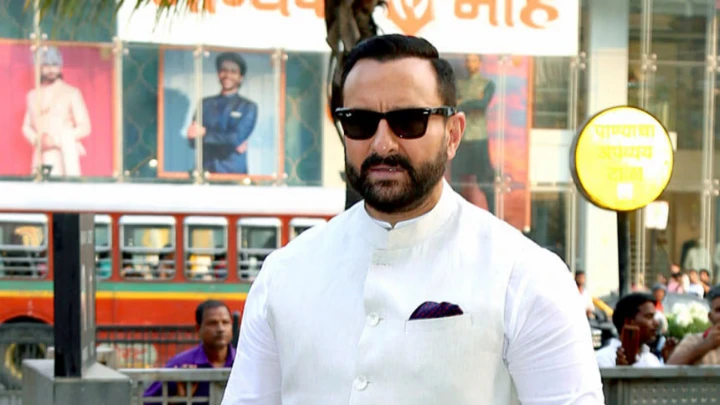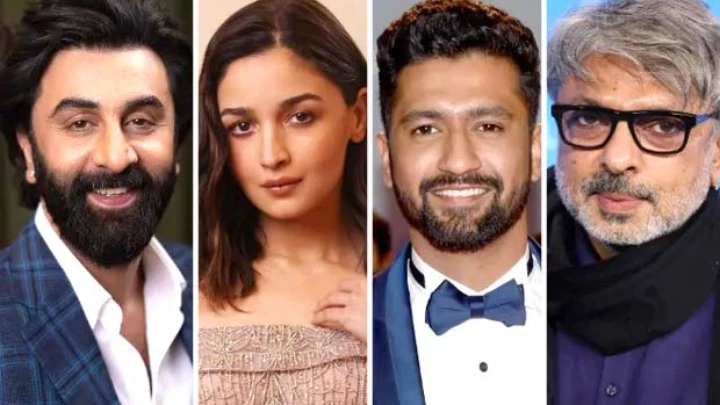‘Laapataa Ladies’ maximises feminism with mistaken identity
TheDailyStar || Shining BD
Set in the fictional Nirmal Pradesh in India, "Laapataa Ladies'" premise follows Deepak (Sparsh Srivastav), a farmer, who mistakenly ends up with Jaya (Pratibha Ranta), another bride, instead of his newlywed wife Phool (Nitanshi Goel). The film however reveals itself as more than just a case of swapped identities on a train. It is a story about defying expectations and finding freedom, wrapped in a cloak of apt humour. Since returning to the director's seat after 13 years, Kiran Rao thus weaves a hilarious tale of these two exchanged brides. The highlight of the film lies beneath the comedic chaos in powerful messages that point to the threads of patriarchy binding women in our society.
The initial reveal, where Deepak discovers that the veiled bride he brought home was Jaya instead of Phool, is still laugh-out-loud funny. The veil, meant to be a form of respect, depicts both literal and metaphorical manifestations in that segment. Rao cleverly uses this comedic situation to explore a deeper theme. In a later scene, a Muslim shopkeeper is seen preaching about the loss of identity due to the veil that real women maintain for their "respectability", only to be greeted by his wife in a niqab serving him tea.
That moment is precisely one of the points the film tries to make, while also using humour to disarm the audience. We find it easy to laugh with the characters in the film, and then a well-placed line or a knowing glance makes us pause to consider the deeper meaning. The film is further strengthened by the brilliant characters, portrayed by the talented ensemble cast.
Regarding the male characters, while Deepak is progressive in his thoughts and actions, Jaya's husband Pradeep (Bhaskar Jha) is rooted in medieval values. There is a scene where someone cracks a dowry joke and Deepak simply rolls his eyes. This is the moment we know we would be cheering for him as a valuable modern man in a world clinging to the past. Pradeep, on the other hand, is the embodiment of everything that is immoral. When he finally appears after the police find him the missing wife he reported about, he regards Jaya as the dowry he felt he had lost. He represents the very stifling traditions that "Laapataa Ladies" narratively dismantles.
As for the ladies, Jaya and Phool are strikingly different women, who have conflicting notions about life. Jaya is an embodiment of girl power — she is passionate about her dreams and is itching to escape an unwanted marriage. Once it was clear that she accidentally got off the train with the wrong man, she does not appear overly bothered about being where she shouldn't be. She even begins to develop a bond with two women in the family - Deepak's mother Yashoda (Geeta Agrawal Sharma) and his sister-in-law Poonam (Rachna Gupta). She is a woman on a mission, who finds herself anew while evidently being lost. In contrast, Phool seems more traditional. She is grief-stricken, a bit of a babe in the woods who cannot even remember the name of the village she was headed to with her husband. When she finds herself lost in a station she is not supposed to be in, she simply waits to be rescued and fears losing the "respectable" image she maintains. She represents the control patriarchy holds over their lives, allowing the power to be sustained. However, just when the two brides lose themselves in this big, bad world, is ultimately when they end up finding themselves.
The other characters in the film, while flawed, are remarkably relatable. Ravi Kishan's portrayal of the police officer Shyam Manohar perfectly embodies this nuance. He is flawed with a touch of greed but eventually by the end of the story he upholds justice. My personal favourite is Manju (Chaya Kadam), the strong-willed tea stall owner, who acts as the voice of the film steering our thoughts in the right direction. For a woman in her financial condition, she possesses remarkable agency and control over her circumstances. One particularly powerful scene rightfully captures the film's essence. In this scene, Manju shares her story of leaving an abusive marriage. Her words, "If those who love you have a right to hit you, I exercised my right, too," echo deeply.
"Laapataa Ladies", in all its extant, dismantles outdated narratives about women. It challenges the idea of the "respectable" girl as a fraud, who is asked to blindly accept the status quo. It celebrates the strength and resilience of women, who navigate a bizarre situation with wit and determination. Women are not the instruments for withholding a family's respect. They are not meant for self-pity and must take charge of their lives to break free from societal constraints. It loudly and clearly communicates, "It's not shameful to be a fool, but being proud of one's ignorance is a shame."
As a film, it wears its social conscience gently. Despite tackling weighty issues, it maintains a breezy and humorous tone. This deft touch prevents its messages from becoming heavy-handed or preachy. Instead, the film subtly champions the rights of women who are often robbed of their aspirations after marriage. This feel-good satire is a must-watch for anyone who enjoys good storytelling.
Shining BD
























